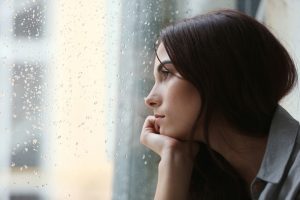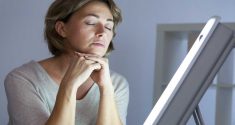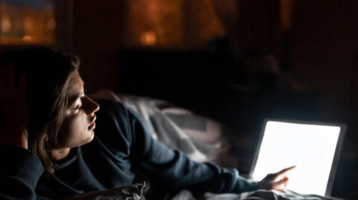In the largest observational study to date exploring chronotype and depression, researchers say morning larks are less likely to become depressed. According to the study, women in mid- to late-life who find themselves naturally going to bed early and waking early are at a lower risk of developing mood disorders. Sleep has a positive effect on the health of the body and eliminates the symptoms of depression.
Chronotype and Wellbeing

Can our sleep-wake phenotype really affect our mental health? Research suggests that is exactly the case. This newest study adds to growing evidence that our chronotype influences our mental wellbeing and suggests that early risers may more regularly be in better moods than their night owl counterparts.
Do you rise with the sun each day? If so, you just may find that you have better health overall. Studies have shown that those of us most likely to have a death grip on our coffee cups are also more likely to face obesity, diabetes, hypertension as well as mental health issues such as increased risk for bipolar disorder, depression, anxiety and substance abuse disorders. At least one study suggests night owls may even die earlier than those who regularly rise and set along with the sun.
In a collaborative effort, researchers from the University of Colorado at Boulder and Brigham and Women’s Hospital decided to further investigate how our sleep-wake patterns are connected with mental health by delving deeper into the relationship between chronotype and depression. The result was the biggest and most detailed study yet to examine the link between chronotype and mental health. The researchers’ findings have been published in the Journal of Psychiatric Research.
A Link Between Chronotype and Depression
The study of over 32 thousand female participants utilized data from the Nurses’ Health Study II, which is an ongoing large-scale population study focused on examining women’s risk factors for chronic disease. Their analysis showed that even after adjusting for environmental variables like work schedule and natural light exposure, our chronotype appears to significantly impact the risk of depression.
According to the lead author of the study, Céline Vetter, director of the Circadian and Sleep Epidemiology Laboratory at the University of Colorado at Boulder, “Our results show a modest link between chronotype and depression risk. This could be related to the overlap in genetic pathways associated with chronotype and mood.”
While previous studies have indicated that later chronotypes are twice as likely to suffer from mental health issues, due to the nature of the data collection and analysis, the results have been relatively inconclusive in determining whether it’s depression leading to late nights or if night owls are inherently more at risk of developing depression.
Early Birds Are Less Likely To Be Depressed

After accounting for factors that may contribute to depression — variables such as physical activity, the presence of chronic disease, weight, the average duration of sleep and whether the participant worked the night shift — the analysts found that, overall, night owls were more likely to live alone and less likely to be married. The late chronotypes were also more likely to smoke and more likely to suffer from erratic patterns of sleep. After accounting for these additional factors, the analysts found that early birds still had a 12-27 percent lower risk of developing depression than those who self-reported as intermediate types.
According to Vetter, “This tells us that there might be an effect of chronotype on depression risk that is not driven by environmental and lifestyle factors.”
Lifestyle Versus Genetics
Genetics do play some part in determining whether a person is likely to be an early riser or a night owl. Some studies have indicated that particular genes, such as PER2 and RORA, both influence our preferred sleep-wake times as well as impact depression risk. However, genetics is not the only influencer, with environmental factors playing a larger role. Genetics preferences aside, most of us adhere to schedules not entirely of our own making. Exposure to natural light plays a large part.
According to Vetter, “Alternatively, when and how much light you get also influences chronotype, and light exposure also influences depression risk. Disentangling the contribution of light patterns and genetics on the link between chronotype and depression risk is an important next step.”
Vetter goes on to stress that while chronotype may be a risk factor for depression, it does not necessarily mean that night owls are doomed to deal with depression. “Yes, chronotype is relevant when it comes to depression but it is a small effect,” she said.
For those who are concerned that their schedules may be impacting their mental wellbeing, she suggests adapting their routines. “Being an early type seems to beneficial, and you can influence how early you are,” Vetter said.
Even those who can’t flip their schedules would still see a benefit from being more mindful of their schedules. It remains true that being sure to get enough quality sleep, plenty of physical activity and as much exposure to natural light as possible are simple and yet impactful things you can do to naturally increase energy levels and improve mental health.







